#Insomnia Management
Explore tagged Tumblr posts
Text
How to Manage Insomnia for Improved Cognitive Function
Insomnia is a pervasive issue in modern society, affecting millions of people worldwide. It is not merely an inconvenience or a minor health issue; it has profound implications for our cognitive function, mental health, and overall well-being. Understanding and effectively managing insomnia is crucial for maintaining optimal brain function, enhancing memory, concentration, and problem-solving…
#cognitive function#cognitive performance#healthy sleep habits#insomnia management#mental wellness#sleep health#stress relief
0 notes
Text
Falling Back: The Transition to Standard Time and Its Impact on Your Sleep

Every year, as autumn ushers in cooler temperatures and shorter days, we participate in the seasonal ritual of switching from Daylight Saving Time (DST) to Standard Time. This shift not only affects the time on our clocks but also has a significant impact on our sleep and circadian rhythm. In this article, we will delve into the science behind the switch to Standard Time and provide you with practical tips to minimize the negative consequences on your sleep and overall well-being.
Understanding the Circadian Rhythm
Before we explore the effects of transitioning to Standard Time, it's essential to understand the concept of the circadian rhythm and how it operates. Our bodies have an internal biological clock, known as the circadian rhythm, which regulates various physiological and behavioral processes, including sleep-wake cycles, body temperature, and hormone secretion. This internal clock operates on roughly a 24-hour cycle and is influenced primarily by external cues, such as light and darkness.
The Role of Light
Natural light, especially daylight, plays a pivotal role in regulating our circadian rhythm. The presence or absence of light signals to our bodies whether it's time to be awake or asleep. Exposure to natural light in the morning triggers the release of cortisol, a hormone that promotes alertness and wakefulness. In the evening, as light diminishes, our bodies produce melatonin, a hormone that signals it's time to wind down and prepare for sleep.
The Impact of Standard Time
Now, let's delve into how the transition to Standard Time affects our sleep and circadian rhythm.
Gaining an Hour:
Unlike the spring transition to DST, switching to Standard Time in the fall means we "fall back," setting our clocks one hour behind. While this may seem like a gift of an extra hour of sleep, it can still disrupt your internal clock. The sudden shift can lead to a temporary misalignment between your biological clock and your daily routine, affecting your sleep patterns.
Circadian Rhythm Adjustment:
Your body requires time to adjust to the new schedule. You may find it harder to fall asleep at the new bedtime and wake up at the desired time, as your circadian rhythm adapts to the shifted daylight exposure.
Impact on Sleep Quality:
Even though you gain an extra hour, the transition to Standard Time can affect sleep quality. Sleep fragmentation, where you wake up multiple times during the night, is common during this period, leading to less restorative sleep.
Minimizing the Negative Effects of the Standard Time Transition
While you cannot control the changing of the clocks, you can take steps to minimize the negative effects of transitioning to Standard Time on your sleep and circadian rhythm. Here are some practical tips to help you navigate the transition smoothly:
Gradual Adjustment:
Start adjusting your sleep schedule a few days before the transition. Go to bed and wake up 15 minutes earlier each day until you reach the new desired bedtime and wake-up time. This gradual approach can help your body adapt more smoothly to the time change.
Prioritize Sleep Hygiene:
Maintain good sleep hygiene practices, such as creating a comfortable sleep environment, keeping your bedroom dark, and avoiding stimulating activities before bedtime. These habits can promote better sleep quality, making it easier to adjust to the time change.
Optimize Light Exposure:
Expose yourself to natural light in the morning to signal wakefulness to your body. Spend time outdoors, take a morning walk, or open your curtains to let the sunlight in. In the evening, dim the lights to help your body produce melatonin and prepare for sleep.
Avoid Excessive Caffeine and Alcohol:
Limit your consumption of caffeine and alcohol, especially in the evening. These substances can disrupt your sleep and make it harder for your body to adjust to the new schedule.
Be Mindful of Meals:
Avoid heavy or spicy meals close to bedtime, as they can cause discomfort and interfere with sleep. Opt for a light, balanced dinner, and try not to eat too close to bedtime.
Stick to a Routine:
Maintain a consistent daily routine, including regular meal times and exercise. A structured routine can help regulate your circadian rhythm and make it easier to adjust to the time change.
Manage Stress:
Practice stress-reduction techniques such as meditation, deep breathing, or yoga to help calm your mind and improve sleep quality during the transition period.
The transition to Standard Time may bring an extra hour of sleep, but it also poses challenges to your circadian rhythm and sleep patterns. By following these tips and being patient with the adjustment process, you can ensure a smoother transition and enjoy restful, refreshing sleep as you adapt to the new schedule. Sleep is a vital component of our overall well-being, so prioritize it, not only during the time change but every day of the year.
#sleepsimplywell#restorative sleep#better sleep#insomnia management#sleep habits#sleepoptimization#sleep schedule#i just want to sleep#overall wellbeing#overall wellness#life balance#Time change
0 notes
Text
Optimizing Sleep: CBT-I, Tech Interventions & Insomnia Management
In today's fast-paced world, sleep health often takes a back seat, leading to a widespread issue—insomnia. Insomnia, characterized by difficulty falling or staying asleep, affects millions worldwide. Fortunately, advancements in both traditional therapies and technology-based interventions offer promising solutions. This blog delves into the efficacy of Cognitive Behavioral Therapy for Insomnia (CBT-I), the role of technology in addressing sleep disorders, and the evolving clinical landscape of insomnia management.
Read Full Blog Here: https://www.grgonline.com/post/optimizing-sleep-cbt-i-tech-interventions-insomnia-management
Understanding Insomnia
Insomnia is more than just a few nights of restless sleep; it can significantly impact mental, physical, and emotional well-being. Persistent insomnia can lead to daytime fatigue, impaired cognitive function, mood disturbances, and chronic health conditions.
The Efficacy of CBT-I
Cognitive Behavioral Therapy for Insomnia (CBT-I) has emerged as the gold standard for treating insomnia. Unlike short-term relief medications, CBT-I focuses on addressing the root causes of insomnia and changing behaviors that perpetuate sleeplessness. It involves sleep restriction, stimulus control, relaxation training, and cognitive restructuring.
CBT-I's effectiveness lies in its holistic approach. It improves sleep duration and quality and equips individuals with long-term strategies to maintain healthy sleep patterns. Studies have shown that CBT-I can be as effective as pharmacological interventions, if not more effective, and its benefits are sustained over time.
Technology-Based Interventions
As technology continues to infiltrate every aspect of our lives, it's no surprise that it's also impacting sleep health. Numerous apps, wearables, and online programs offer solutions for people with insomnia. These interventions often combine techniques from CBT-I with the convenience of digital platforms.
Apps and wearables track sleep patterns, giving users insights into their sleep quality and habits. Some even offer guided relaxation exercises or white noise to help individuals fall asleep faster. While these interventions are generally well-received, choosing reputable and evidence-based options is important.
The Clinical Landscape of Insomnia Management
Healthcare professionals increasingly recognize the importance of addressing insomnia as a standalone condition. The shift from prescribing sleep medications to offering comprehensive interventions like CBT-I signifies a more patient-centered approach.
Sleep clinics and specialized centers are also becoming more prevalent. These facilities provide tailored assessments and interventions, often combining medical expertise with psychological support. The clinical landscape now focuses on individualized treatment plans that consider each patient's unique needs and underlying factors.
The Road Ahead
Enhancing sleep health involves a multi-faceted approach. Incorporating CBT-I, utilizing technology-based interventions mindfully, and seeking guidance from healthcare professionals can collectively contribute to overcoming insomnia. As research continues to refine our understanding of sleep and its complexities, we can expect even more personalized and effective interventions in the future.
Conclusion
Prioritizing sleep health is no longer a luxury; it's a necessity for overall well-being. With the proven efficacy of CBT-I and the growing availability of technology-driven solutions, individuals struggling with insomnia have reason to be hopeful. By embracing these advancements and integrating them into a holistic approach to health, we can pave the way for better sleep, improved quality of life, and enhanced overall health.
Visit our website now: https://www.grgonline.com/

#sleephealth#Optimize Sleep#Insomnia#Insomnia Management#sleep optimization#sleepwellness#sleep aids#quality sleep#Insomnia Solutions
0 notes
Text
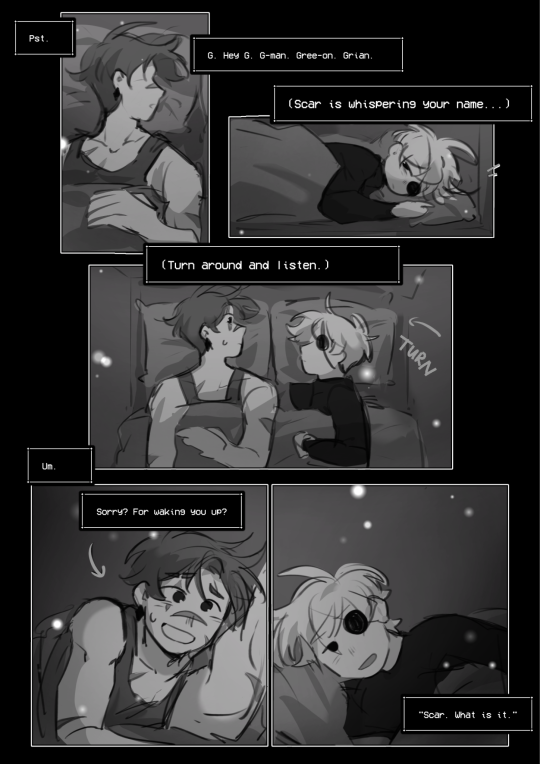
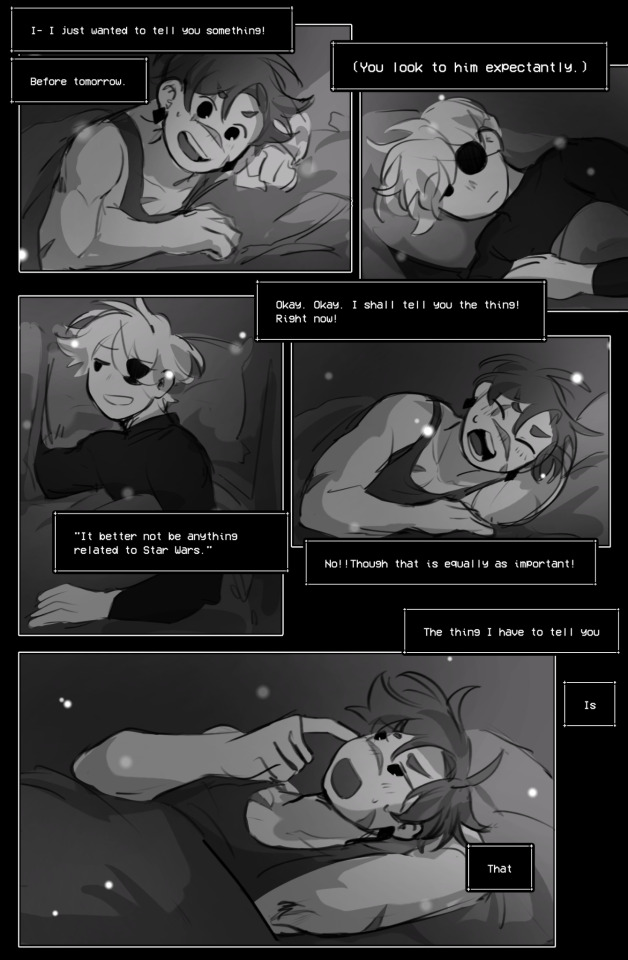

[Day 304]
Andddd here begins Grian's long suffering o7
this is a canon event don't blame me blame the game👍
#dddaily4sherin#in stars and lives#desert duo#scarian#trafficshipping#hermitshipping#my art#THIS IS FINALLY DONE LETSGOOOOOOOO#To be continued maybe LOL#also please appreciate how i managed to come up with different poses and shots and only copy pasted each one (1) time#im never drawing people sleeping again they should all have insomnia /SILLY
2K notes
·
View notes
Text
Autism and Being Constantly Exhausted









Neurodivergent_lou
#autism#actually autistic#exhaustion#bring constantly tired#burnout#masking#managing sensory overload#insomnia and sleep issues#executive function#neurodivergence#neurodiversity#actually neurodivergent#feel free to reblog#neurodivergent lou (facebook)
981 notes
·
View notes
Text
Social Media Time #1
[Social media is a big thing, so what's going on with Gotham's own accounts?] Main Masterlist Regent Masterlist Mundane Macabre

[#1: The Justice League declares that the GIW is in violation of the Metahuman rights act and that they nearly caused an interdimensional war.]
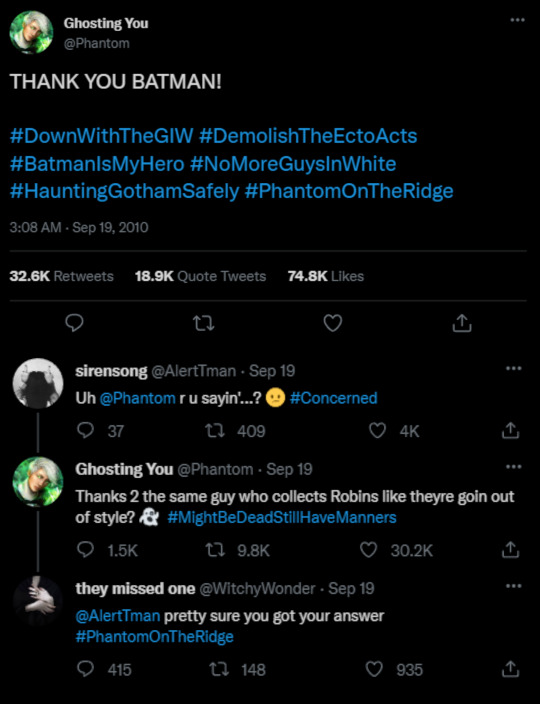
[#2: The vigilante Phantom publically posts his thanks to Batman.]
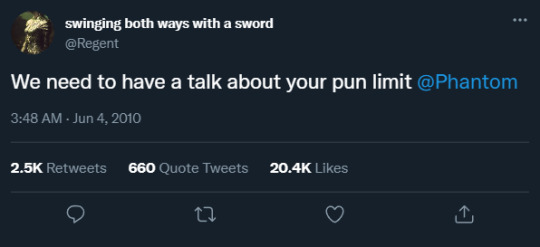
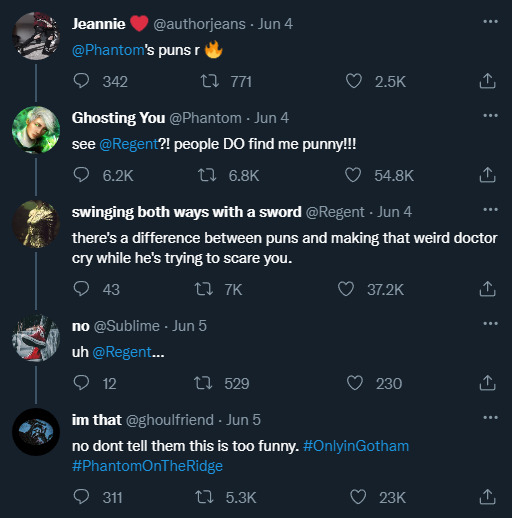
[#3: phantom's puns are officially certified to make a rogue cry.]
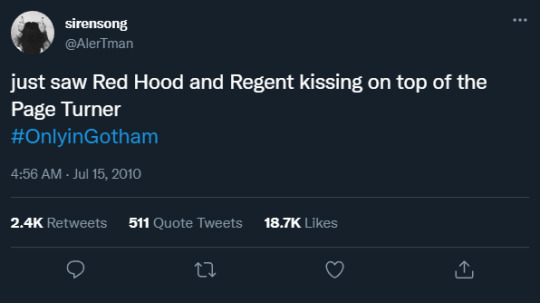
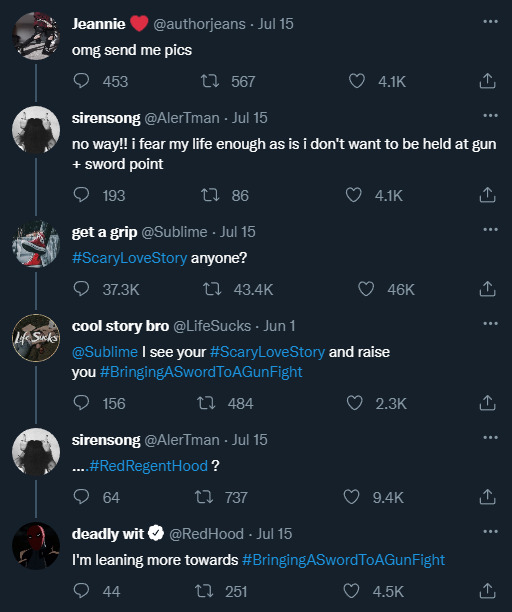

[#4: Red Hood getting a vote in his own ship name. :) ]
Free Nightingale @thewanderer = Ellie Nightingale Star child @nasanerd = Danny Nightingale
Social Media AU: #2
#dp x dc#dpxdc#dp x dc au#dc x dp crossover#regent!jazz#hardcover ship#anger management ship#jason todd#red hood#social media au#somewhere on the timeline this exists#once again brought to you by internet and insomnia
660 notes
·
View notes
Text

I dont have a clever and witty sarcastic comment tonight, I just think she's cute
#my brain isnt working rn its 3am ive been reading fanfics while hyperventilating over the irreparable damage i managed with my limited life#tee hee im just kinda feeling moody tonight 🤪#somebody please ban me from tumblr between 1am to 11am i do not function as a stable person between those times#i schedule my mental breakdowns they work really well with my schedule#its multitasking cause I'll already be up from insomnia its really efficient in the grand scheme of things#ah i love the fact that nobody can stop me from writing the most deranged shit in the tags of a cute cat pic <3#animals#petblr#cat#cat life#cat lovers#catblr#my cat#cat photos#cat pictures#cats of tumblr#calico#calico cat#OH UH THATS WHAT I WAS SUPPOSED TO SAY FOR AMERICANS THE REASON IM SAYING ITS NIGHT WHEN THIS IS POSTED DURING THE DAY IS BECAUSE ITS QUEUED#i queue most stuff because i dont usually have the energy or time to be active at good times#i get little bursts of post motivation and dont wanna flood my 9 followers (at least 6 are dirty bots) with my bs#im just a dumbass that never tags shit
603 notes
·
View notes
Text
So I’m not endorsing Fight Club - it’s a problematic book with a deeply toxic cultural legacy - but as a queer AFAB millennial who grew up in the sunken place of really wanting to identify with images of traditional masculinity… that shit rocked my world circa 2006.
And it just occurred to me how easily you could map Fight Club’s core plot conceit* onto NBC Hannibal (especially season 1); and that got me thinking about the parallels and differences between these two works.
Spoilers for a 28-year-old movie below the cut.
*the core plot conceit of Fight Club is that the two principal characters - the charismatic and dangerous Tyler Durden, and the story’s unnamed narrator - are in fact one person. The narrator is not aware of this until the final act.
(Also - I’ve added headings, because I know this is very long and rambly, and I feel an appropriate amount of shame about that. )
[How this idea originally occurred to me]
So what originally got me thinking about this is that in NBC Hannibal, Will is always tired, while Hannibal, mysteriously, seems to have at least 40 hours available for crafts and hobbies in every day.
This maps very neatly onto the way time seems to work for Tyler Durden, vs. how it works for the insomnia-plagued narrator.
[Main thesis]
But there’s a lot more similarities than that - most notably, the overall arc of the narrator-Tyler / Will-Hannibal relationship:
1. Both Hannibal Lecter and Tyler Durden breeze into our main character’s lives, and very quickly install themselves at the very centre of it.
2. Both become an object of unacknowledged homoerotic yearning for the main character, before finally being revealed to be extremely dangerous villains who were manipulating the main character all along, and who were instrumental in blowing up the main characters’ lives.
3. Ultimately, in both works, the main character ultimately rejects their “friend” by attempting suicide in a way that will kill both of them (and, in doing so, stops the “friend” from committing further harm).
[Bonus Round]
Other parallels include:
- that Hannibal and Tyler are both exceptionally ostentatious in their mode of dress, in contrast to our comparatively mousey main characters.
- that they both serve to invite the main character to embrace violence (something the narrator in Fight Club does easily, but which Will Graham, to his credit, resists).
- Hannibal’s ritualized sadistic physical torture of Will (in Mizumono, and the again in Dolce / Digestivo) also mirrors the scene in Fight Club where Tyler burns the narrator’s hand.
- Hannibal and Tyler also both enter the main character’s lives at a time when they are struggling with insomnia based on guilt related to their jobs. (Jobs, btw, where both of them have bosses they cannot stand and do not respect.)
[Alana Bloom and Marla Singer]
I also think the Marla Singer / Alana Bloom parallel is interesting.
In both cases, these women are implied to be the only woman who might, possibly be a match for the main character - someone who could possibly understand them enough to form a possibly-healthy relationship.
Instead, however, Alana and Marla end up forming relationships with Hannibal and Tyler (respectively).
In both works, this makes the main character despair (even as it is implied that the woman would actually rather be with the main character than with Hannibal / Tyler).
[Bonus Round II - Electric Boogaloo]
Also, on a more superficial level, both Marla and Alana have stunningly pale skin and dark hair (much as both Tyler and Hannibal are sandy blondes who seem larger-than-life in comparison to our dark-haired, ruddy-complexioned protagonist).
I would also like to rapidly recognize:
- the aesthetic similarities in Randall Tier’s death and that of Jared Leto’s character in the film version of Fight Club
- the amusing parallel of both Tyler and Hannibal creatively repurposing dead human tissue, which they then gleefully give to rich people who do not know what they are consuming (Tyler, by making medical-waste human fat into bougie soap; Hannibal, by making murder victims into gourmet meals)
- the way that the “the line between us has begun to blur” theming in Season 3 of Hannibal echoes the “literally the same person” reveal in Fight Club
[Conclusion]
With all this in mind, I think it would be very possible (and potentially quite fun) to plot out a Fight Club AU of Hannibal, wherein there is no Hannibal Lecter. (Might explain why he has such a stupid fucking name. Yeah, I said it. It’s fucking dumb that his name rhymes with “cannibal”. Fight me, Thomas Harris.)
[Appendix - Contrasts]
That said, the differences are also quite notable:
1. Whereas Tyler Durden seduces the narrator in Fight Club with the promise of validation from a male social group, Hannibal Lecter’s pitch to Will is that he recognizes that Will is is unique and special, and appreciated him as such.
2. Tyler Durden is overtly political, positioning himself as outside the system, and explicitly anti-capitalist. Hannibal Lecter, on the other hand, is apolitical, and perfectly comfortable being a member of the ruling class. There is no anti-capitalist motive to his crimes against the rich.
3. In rejecting Tyler, the narrator in Fight Club (especially in the film version) symbolically reclaims his heterosexuality, and is implied to have formed a bond with Marla; whereas Will Graham (literally) embraces Hannibal even as he rejects him, and Alana has long since been clearly shown to have adopted a position of “To hell with these gay idiots”.
4. While imperfect, Will Graham is a lot more sympathetic than the narrator of Fight Club; both because of how vigorously he resists Hannibal (as alluded to above), and in terms of what we see of him before he falls under Hannibal’s spell:
— Will’s guilt stems from an action (shooting Gareth Jacob Hobbs) that most people would consider morally-correct. In Fight Club, on the other hand, the narrator’s guilt stems from condemning strangers to die in order to save his company money.
— The narrator in Fight Club is shown to have been driven by his insomnia to the point of engaging in vampiric support-group grief tourism (which - yikes). By contrast, Will is seen calling Jack Crawford out on the inherently exploitative nature of his “Evil Minds Museum”.
— Whereas the narrator in Fight Club lives a life of hollow consumerist grasping, Will is shown to live a materially-simple life, which he generously shares with a menagerie of abandoned dogs. It is easy to imagine that he would put his dogs’ needs ahead of his own, given that we see him putting time and energy into rescuing and washing Winston, even at the end of a long, exhausting workday.
[Postscript]
I literally typed this whole-ass essay out before I remembered that Edward Norton (who played the narrator in Fight Club) also once played Will Graham (in the 2002 film Red Dragon, which I have not seen, but which I remember Bryan Fuller having credited with giving him the idea to write NBC Hannibal).
#nbc hannibal#fight club#hannibal analysis#hannibal meta#hannibal crack#parallels#contrasts#will graham#hannibal lecter#tyler durden#alana bloom#marla singer#jack crawford’s password is definitely ‘password’#jack crawford#randall tier#yes I realized the Ed Norton angle#eventually#hannibal fight club au#will graham’s insomnia#hannibal lecter’s insane time-management skills#hannibal#hannibal nbc#cw sui mention
30 notes
·
View notes
Text
.
#i have never spoken about this#but i take thc/cbd oil for chronic pain management#and i’ve been on it for four years now#it’s way more common than you think#i use it more so for sleeping purposes because i struggle with pain-related insomnia#and in my case i’m not on a dose that makes me feel “high”#people act so surprised when i have brought up that i take it but it doesn’t have as many side effects as most opioids#and i take mine under the guidance of a pain specialist and have tga approval to use it#all of this to say to perhaps not judge people who utilise it to manage their pain levels#i know i would rather not take anything#but chronic pain really takes a toll on your body not just physically but mentally#anyway mini confession over#personal
33 notes
·
View notes
Text
hate that my only two modes are "cant sleep no matter how tired i feel" and "cant stay up no matter how much sleep i get"
anyway ive slept 18 of the past 24 hours and im STILL EXHAUSTED
#kcqt rambles#this time at least i blame it on my insomnia meds#which i stopped taking for a while but did take yesterday bc ive been having so much trouble sleeping lately#when i was regularly taking them before i was also on another med that was supposed to give me energy#like. id take my help-me-sleep meds at night and my wake-me-up meds in the morning#but i stoppedtaking that one cause of the side effects :/#so now im just. perpetually fucking eepy#need a new wake-me-up med to take#aaanyway we'll see if i manage to sleep tonight or if im just. nocturnal now 😭#wish me luck? ig?#:/
13 notes
·
View notes
Text
*entire body screaming in pain all day*
*drugs kick in*
*entire body softly groaning in pain*
My sleep brain: fuck it, close enough, time to sleep.
My THC brain with ADHD (or the other way around): You fool, you think we're not going to read Whump fics for an hour and then dream an entire episode.
*drugs kick in harder*
Yeah I'm good now. Kick harder, drugs.
#skeletal muscle relaxant#cannabis and chronic pain#the boadicea method of chronic pain management#why i write Mikey with fibromyalgia#whoops I'm high#insomnia ramblings#sciatica#disturbia but it's sciatica#spastic hemiplegia#back pain
29 notes
·
View notes
Text
People talk about fast metabolisms like it's all fun and games and eating whatever you want but they fail to remember that it also means your body is Incredibly Stupid and decides that you become deficient in everything in a couple or so days where it takes most others a week. Or months compared to "oops you forgot to photosynthesize sufficiently :( no i don't care that it has been freezing and overcast for the past week, you didn't absorb enough sun. Perish Badly."
Or at least it would be if i didn't like citrus fruits so much, probably
#glaring at whatever secret brain section is in control of my body resource management. why am i iron deficient again. it has been 2½ days.#and all that has been spent mostly SLEEPING because GUESS WHAT ALSO DOESN'T WORK RIGHT BECAUSE OF METABOLISM.#SLEEP AIDS. LIKE MELATONIN#i have to take a double dose if i want these fucking dumb ass gummies to do anything. otherwise they don't do shit unless I'm already asleep#but guess what? i can't get to sleep :) because another thing in the list of Patch Problems is chronic insomnia. and i can't sleep#so the melatonin does ✨️NOTHING✨️#same goes for pain meds and local anesthetics because my metabolism is so so good at it's job :) when it does not need to be#like bbg we are not poisoned we are at the dentist CALM THE FUCK DOWN??? SO I DON'T FEEL THE DAMN DRILL IN MY TOOTH?????#hhhhhhhhhhhhhhhhg#i do not need so many issues stacked on top of eachother#istg i would not have survived in any century before this one. what do you mean i get sickly deficient in things in less time than Normal™️#i can't even drink plain water or it makes me nauseated. body why are you Stupid#patchy rambles#is this slightly incomprehensible? probably#but it is 1 in the morning and i am pissed at my own body for hating me so much and this is My Blog so i put My Problems on it#rgrgrgrgr
6 notes
·
View notes
Text
Guess who’s pulling an all nighter because I want to get a paper done by tomorrow morning?
13 notes
·
View notes
Text
This post has got me remembering a strange moment I had a few years back (probably 2020, as I remember feeling like total shit emotionally and that was most of 2020 for me et al.) I’ve always struggled on/off w/ bouts of insomnia and I was in one, the worst it had been since college. I was so fucking exhausted but couldn’t drift off and so I was up in the middle of the night…I went to wash my hands and the sink stopper was broken so the water was hitting the drain in a weird way that made…….a, let’s say, interesting sound. And I was certain it r e a l l y was talking to me. Like inside the drain was a voice. I was standing there in the middle of the fucking night concentrating on “the voice” like oh I for sure hear someone in the drain, I can almost make out the words—when I realized I needed to get my ass back in bed and at least try to sleep again and I mercifully DID fall asleep shortly after. I’ve never experienced anything like it before or since.
In the morning I told Ronald the story and how I realized how much my dad was CONSTANTLY sleep deprived and how I’m sure it fucked with his mind. (He really did work 90-120 hours a week for literal years on end.)
#THANK GOD my insomnia is fairly well managed by a cocktail of meds mostly for other ailments but that makes me more drowsy at bed time#oh and weed. how could I forget#weed is 99% of why I sleep now and 99% of why I love weed 😂#mine#personal#reblogs off for obvious reasons but a ❤️ is always appreciated by me
9 notes
·
View notes
Text
finn greeting the morning with me 👍

#did Not sleep. could Not sleep#this is the worst thing about alcohol actually. hangovers nausea and pain i can manage just fine but OH my god the insomnia#the insomnia should be the main anti alcohol slogan warning thingy honest 2 god#UGHHHHHHHHHHHHHHH anyway gpod morning gamers
9 notes
·
View notes
Text

Danny Phantom x DC crossover
Regent!Jazz, Vigilante!Jazz AU
Jazz Fenton/Jason Todd (Anger management or Hardcover ship)
Main Masterlist AO3
Original prompt
Part 1: What’s lost can be found
Part 2: Let the world know
Part 3: If you could’ve seen
Part 4: Show me those issues
Part 5: Dare not preach
Part 6: From the top of my lungs
Part 7: Running from a crucifixion
Part 8: Dressed in all black
Part 9: Left its seeds while I was sleeping
Part 10: Keep me from my grave
Part 11: A thousand candles burn into the night
Part 12: It was just for fools
Part 13: Goddamn when you're young
Part 14: Taking these wounds to their grave
Part 15: We’re all misunderstood
Part 16: But I know where to start
Part 17: The stars are shining their brightest light
Part 18: I'm anything but tame
Part 19: Wrapped in your regret
Part 20: I speak in tongues
Part 21: All the ashes in my way
Part 22: The future is a foreign land
Part 23: Never as lost
Part 24: Every color that you are
Part 25: Ready or not
Part 26: Hear the silence
Part 27:
Memes: #1 #2 #3. #4 Social Media Time: #1 #2 #3 #4 #5

The Regent & Red Hood Official Spotify Playlist (Title songs) The Regent & Red Hood UN-Official Spotify Playlist (Inspiration songs)
#dc x dp crossover#dp x dc#dpxdc#jazz fenton#regent!jazz#jason todd#dp x dc au#masterlist#hardcover ship#anger management ship#jazz x jason#slow burn#angst with a happy ending#mutual pining#now with memes#memes brought to you by insomnia and internet access#regent!jazz memes
805 notes
·
View notes